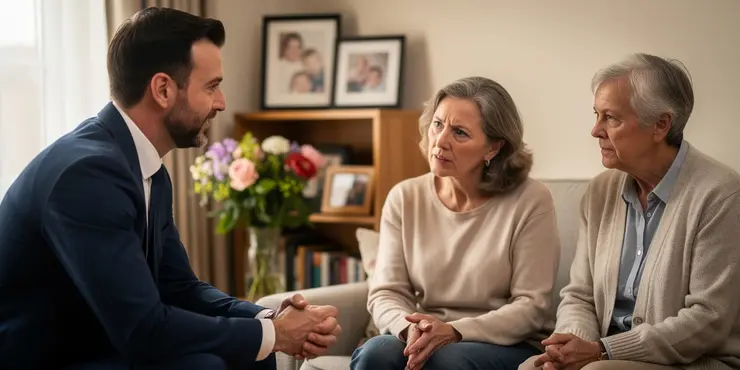
Find Help
More Items From Ergsy search
-
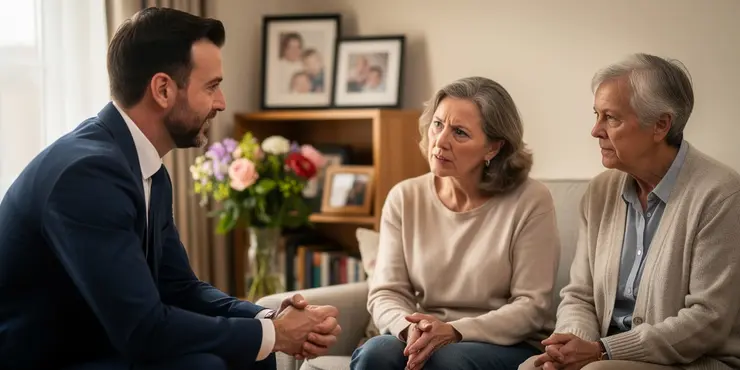
How to arrange a funeral in the UK
Relevance: 100%
-

What is the average cost of a funeral in the UK?
Relevance: 97%
-

What support is available for funeral costs in the UK?
Relevance: 91%
-

How much does a funeral typically cost in the UK?
Relevance: 91%
-
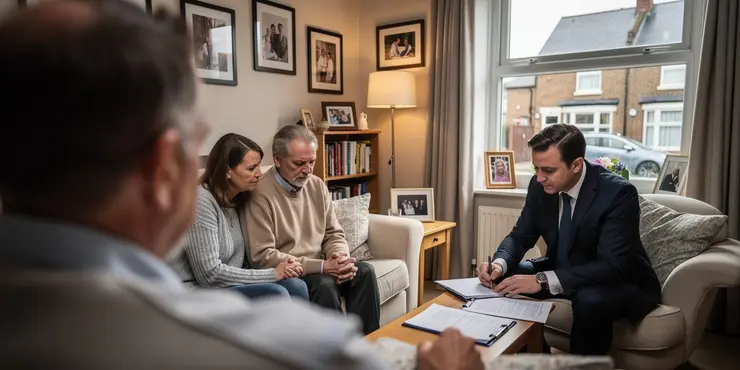
What is the first step in arranging a funeral in the UK?
Relevance: 88%
-
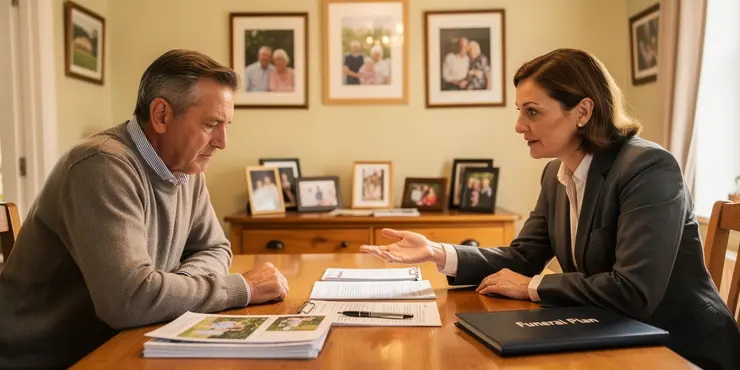
Planning for your funeral
Relevance: 82%
-

What is a public health funeral?
Relevance: 79%
-

What costs are usually associated with a funeral?
Relevance: 77%
-
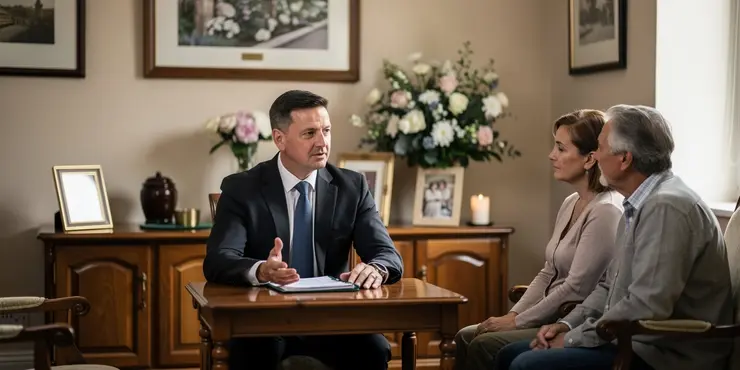
Can I get a loan to cover funeral costs?
Relevance: 76%
-
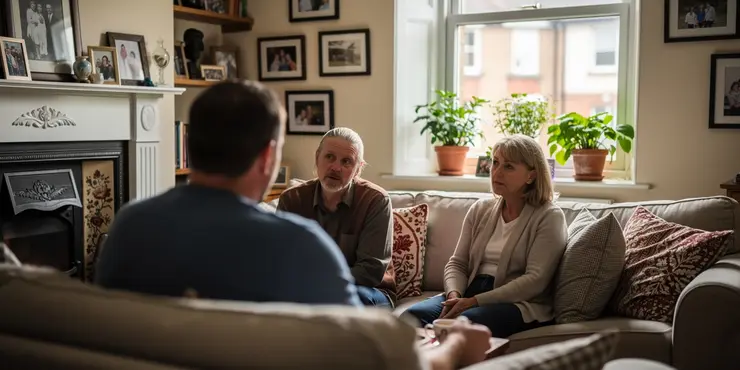
Can I arrange a funeral service myself without a funeral director?
Relevance: 76%
-

How do I apply for a Funeral Expenses Payment?
Relevance: 75%
-

Are there any charities that can help with funeral costs?
Relevance: 75%
-

What Do You Want for Your Own Funeral? | Personal Funeral Wishes Explored
Relevance: 74%
-
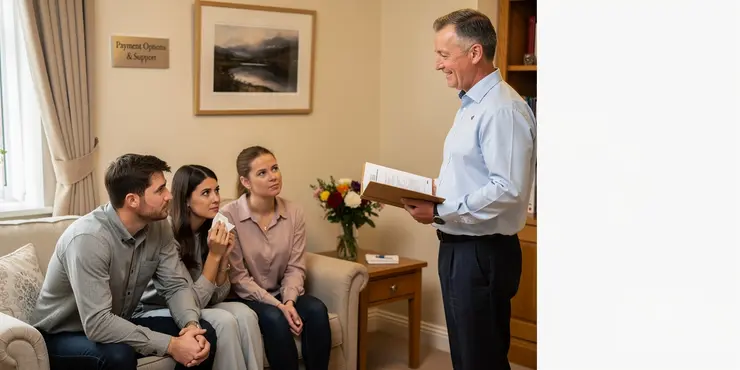
Can funeral directors offer payment plans?
Relevance: 74%
-

What is a green or eco-friendly funeral?
Relevance: 74%
-

Who is eligible for a Funeral Expenses Payment?
Relevance: 74%
-
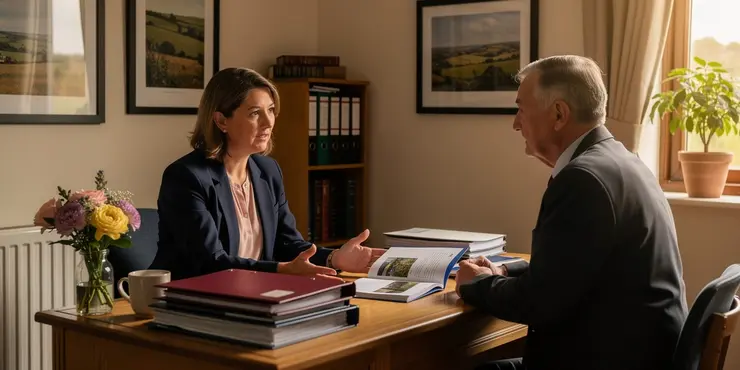
What is a pre-paid funeral plan?
Relevance: 74%
-

Does life insurance cover funeral costs?
Relevance: 73%
-

What financial help is available for funeral costs?
Relevance: 73%
-

Can I use crowdfunding to raise money for funeral expenses?
Relevance: 72%
-

What are the different types of funerals available?
Relevance: 72%
-
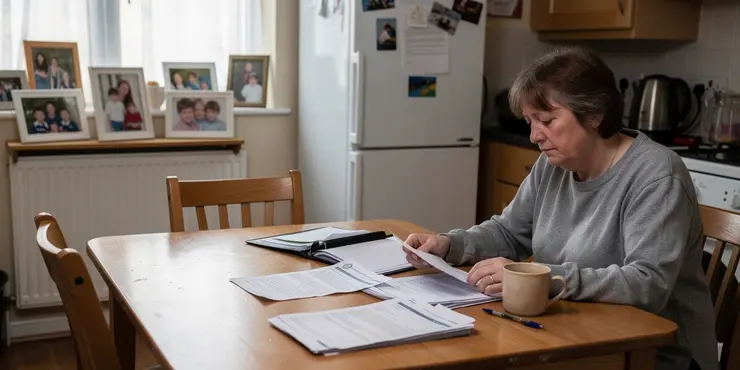
What documents will I need to apply for a Funeral Expenses Payment?
Relevance: 72%
-
Can I have a funeral service at home?
Relevance: 72%
-

Funeral Costs - Where to get help? - Community Legal Education
Relevance: 71%
-
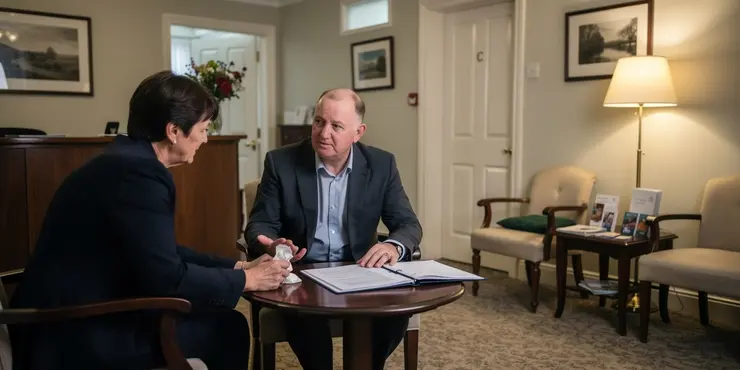
How do I choose a funeral director?
Relevance: 70%
-
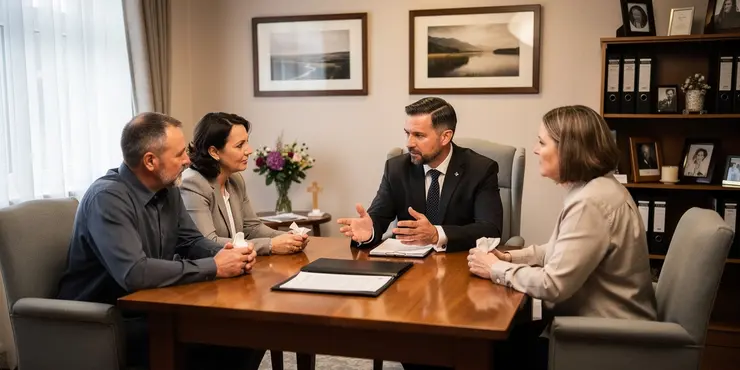
What is the role of a funeral director in a traditional burial?
Relevance: 70%
-

How much can I receive from the Funeral Expenses Payment?
Relevance: 70%
-
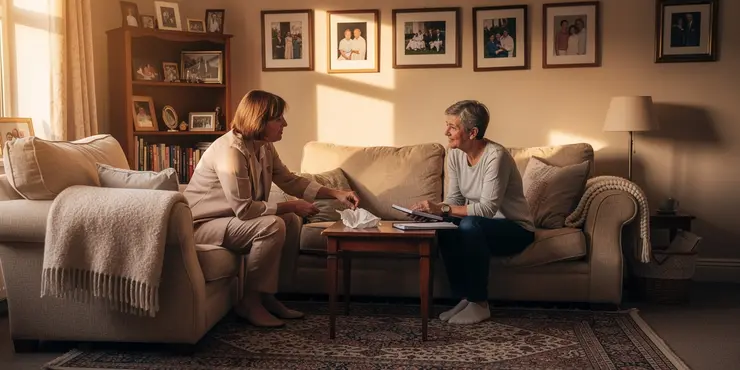
Planning Your Funeral in Advance? | Expert Tips from Celebrants
Relevance: 70%
-
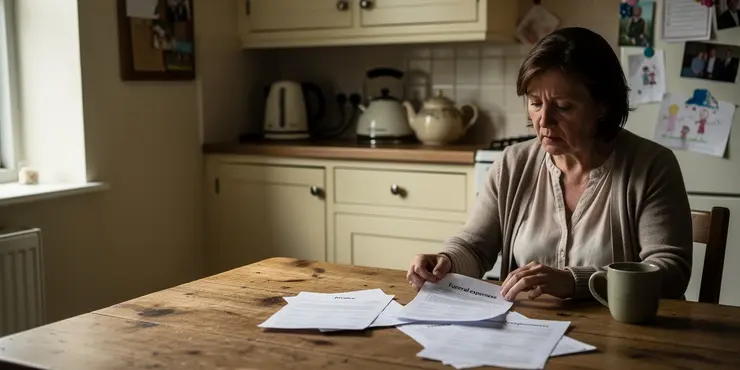
What financial support is available for funeral expenses?
Relevance: 69%
-
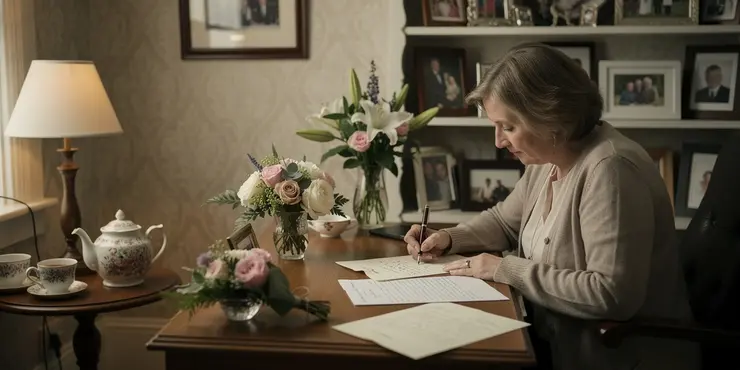
How do I notify people about the funeral?
Relevance: 68%
-
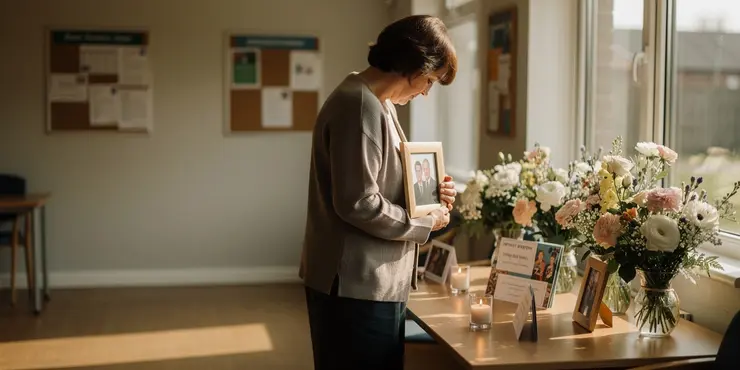
How soon after the funeral can the cremation take place?
Relevance: 64%
-

Are there regulations on transporting the body before the funeral?
Relevance: 64%
-

Is embalming required for ground burial in the UK?
Relevance: 61%
-
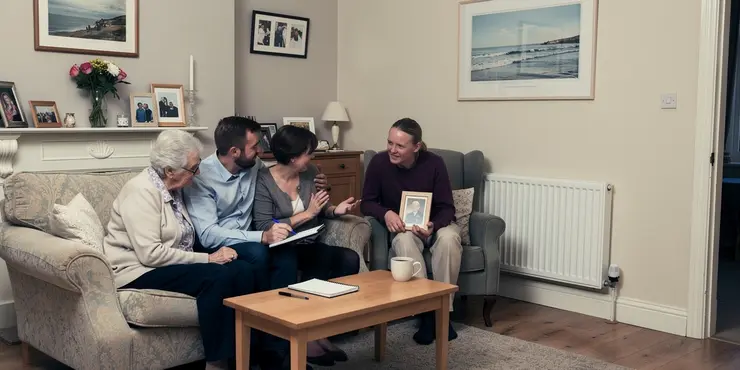
How can I personalise a funeral service?
Relevance: 60%
-

Do I need to have a wake or reception after the funeral?
Relevance: 60%
-
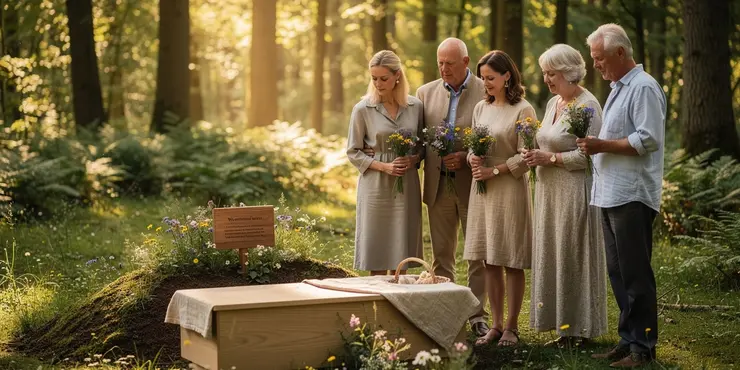
Can I have a funeral ceremony at a woodland burial site?
Relevance: 58%
-
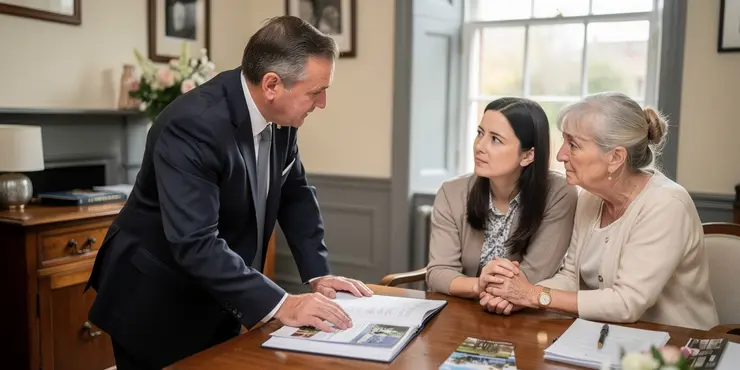
How much does a traditional ground burial cost in the UK?
Relevance: 54%
-

Is cremation more affordable than burial in the UK?
Relevance: 53%
-

What is direct cremation and how much does it cost in the UK?
Relevance: 53%
-

Does bereavement leave cover funerals for cultures or religions with extended mourning periods?
Relevance: 51%
How to Arrange a Funeral in the UK
Arranging a funeral can be an emotionally challenging process. It is important to understand the steps involved to ensure that the arrangements reflect the wishes of your loved one and comply with UK legal requirements.
Understanding Legal Requirements
The first step in arranging a funeral is to register the death. In the UK, this must be done within five days (or eight days in Scotland) at the local registry office. You will need a medical certificate showing the cause of death, which is usually provided by a doctor. Once the death is registered, you will receive a death certificate, which is necessary for arranging the funeral.
Choosing a Funeral Director
A funeral director can provide invaluable assistance in planning the funeral. They can help arrange transportation, prepare the body, and organize the ceremony. It is advisable to choose a funeral director who is a member of a recognized trade association, such as the National Association of Funeral Directors, to ensure professional standards are met.
Deciding on the Type of Funeral
In the UK, you can choose a burial or cremation. Consider the wishes of the deceased and their religious or cultural preferences. Burials may involve purchasing a grave plot, while cremations can include options for scattering ashes or interring them in a columbarium. Funeral directors can offer guidance on these options.
Planning the Funeral Service
You can personalize the funeral service by choosing readings, music, and speakers. Decide whether you want a religious or non-religious ceremony, and consider who will lead the service. You might also want to create an order of service booklet for attendees. Remember to notify friends and family of the time and location.
Financial Considerations
Funerals can be expensive, so it is important to establish a budget early on. Check if the deceased had a pre-paid funeral plan or if there is insurance to cover costs. The UK government may also provide financial assistance through its Funeral Expenses Payment for those who qualify. Compare services and costs from different funeral directors to find an option that suits your budget.
After the Funeral
After the funeral, consider ongoing memorials, such as planting a tree or creating a donation page in memory of the deceased. It is also important to send thank-you notes to attendees and those who sent condolences. Grieving is a personal process, and support groups are available if needed.
How to Arrange a Funeral in the UK
Arranging a funeral can be hard and emotional. Here are the steps you need to take to make sure everything goes smoothly. It's important to follow what your loved one wanted, and also to meet UK laws.
Understanding Legal Requirements
First, you need to officially record the death. In the UK, this must be done within five days. In Scotland, it's within eight days. Go to the local registry office to do this. You'll need a paper from a doctor that tells how the person died. This paper is called a medical certificate. Once you register the death, you get a death certificate. You'll need this to plan the funeral.
Choosing a Funeral Director
A funeral director can help you a lot. They can arrange transport, get the body ready, and plan the service. It’s good to pick a funeral director who is part of a group like the National Association of Funeral Directors. This makes sure they follow professional rules and do a good job.
Deciding on the Type of Funeral
In the UK, you can choose between a burial or a cremation. Think about what your loved one would have wanted. Also, take into account any religious or cultural needs. For a burial, you might need to buy a grave plot. For a cremation, you can scatter the ashes or keep them in a special place. Funeral directors can help you decide.
Planning the Funeral Service
You can make the funeral service special by picking readings, music, and speakers. Decide if you want it to be religious or not. Think about who will lead the service. You might want to make a program for people to follow during the ceremony. Don't forget to tell friends and family when and where the service will be.
Financial Considerations
Funerals can cost a lot of money, so make a budget early. Check if there’s a pre-paid plan or insurance to help pay. The UK government can help with costs through its Funeral Expenses Payment if you qualify. Look at different funeral directors to find a price that's right for you.
After the Funeral
After the service, you might want to do something to remember your loved one, like planting a tree or starting a donation page. It's nice to send thank-you notes to people who came or sent kind messages. Grieving takes time, and there are support groups to help you if needed.
Frequently Asked Questions
What is the first step in arranging a funeral in the UK?
The first step is usually to register the death at a local register office. This needs to be done within five days in England, Wales, and Northern Ireland, and within eight days in Scotland.
What documents are required to register a death?
You will need the medical certificate of cause of death from the doctor, and if possible, the deceased’s birth certificate, marriage or civil partnership certificate, and NHS card.
How do I choose a funeral director?
You can choose a funeral director who is a member of a professional association such as the National Association of Funeral Directors (NAFD) or the National Society of Allied and Independent Funeral Directors (SAIF). They will be able to offer guidance and support through the process.
What are the different types of funerals available?
In the UK, you can choose between cremation and burial. Within these, you can have religious, non-religious, or humanist services, depending on the wishes of the deceased and the family.
How much does a funeral typically cost in the UK?
The cost can vary significantly depending on the choices you make, but the average cost of a funeral in the UK is around £4,000 to £5,000. This includes costs for the funeral director, service, burial or cremation, and third-party fees.
What financial support is available for funeral expenses?
If you're on a low income and need help to fund the funeral, you might be eligible for a Funeral Expenses Payment from the government, or a Bereavement Support Payment if your partner has died.
How do I organise the order of service?
Speak with the clergy or celebrant who will be leading the service. You can decide on readings, music, eulogies, and any other elements you wish to include.
What is a green or eco-friendly funeral?
A green funeral aims to minimise the environmental impact. This might include using a biodegradable coffin, opting for natural burial sites, or choosing sustainable practices throughout the funeral process.
Can I arrange a funeral service myself without a funeral director?
Yes, arranging a funeral without a director is legal in the UK. It's crucial to ensure you follow legal requirements, such as obtaining necessary permits and preparing the body according to legal standards.
How do I notify people about the funeral?
You can inform family and friends through personal contact, phone calls, social media, or a funeral notice in local newspapers.
Are there regulations on transporting the body before the funeral?
There are no specific UK-wide regulations, but it's important to ensure dignity and respect in transporting the body. If using your own vehicle, you should see the appropriate care and containment.
Can I have a funeral service at home?
Yes, you can hold a funeral service at home. This offers a more personal and intimate setting, but it's important to ensure that there's enough space and facilities for attendees.
What should I include in a eulogy?
A eulogy should reflect the character and life of the deceased. You can include anecdotes, pivotal life moments, hobbies, virtues, and the impact they had on others.
Do I need to have a wake or reception after the funeral?
A wake or reception is optional but provides an opportunity for family and friends to gather, share memories, and support one another.
How can I personalise a funeral service?
You can personalise a service with specific music, readings, or poems that were meaningful to the deceased, unique floral arrangements, special locations, or personal touches in the order of service.
What is the first thing to do to plan a funeral in the UK?
When someone dies, the first thing you need to do is get a death certificate. You can ask a doctor to help with this.
If you find this hard, you can ask a friend or family member to help you. There are also funeral directors who can help you with planning. They know what to do and can explain things step by step.
When someone dies, the first thing you need to do is tell the local register office. This is called registering the death. You must do this in five days if you are in England, Wales, or Northern Ireland. If you are in Scotland, you have eight days to do it.
What papers do you need to register a death?
You need some important papers when someone dies. You need a paper from the doctor that says why the person died. If you can, also have these papers:
- The person’s birth certificate.
- Their marriage certificate if they were married, or civil partnership certificate.
- Their NHS card.
These will help you with what you need to do next.
How do I pick a funeral helper?
When someone dies, a funeral helper can help. They make sure everything goes well.
Here is how to pick a funeral helper:
- Ask friends or family if they know a good helper.
- Look for helpers in your area.
- Make a list of what you want. This could be help with a ceremony or taking care of the body.
- Talk to a few helpers and ask questions. You can ask about their cost and what they do.
- Choose the helper that feels right for you and your family.
Some people like to have notes or a checklist to help them remember. You can also ask someone you trust to help you make the choice.
You can pick a funeral helper who belongs to a special group. Look for ones in groups like the National Association of Funeral Directors (NAFD) or the National Society of Allied and Independent Funeral Directors (SAIF). They will help you and give support when you need it.
What kinds of funerals can you choose?
In the UK, when someone dies, you can choose to have a cremation or a burial. You can have different kinds of services, like religious, non-religious, or humanist. This depends on what the person who died and their family wanted.
If reading is hard, you can use tools to help, like audiobooks or reading apps. It's okay to ask someone to read with you or explain things.
How much money is needed for a funeral in the UK?
The price of a funeral can change a lot based on what you pick. But usually, a funeral in the UK costs about £4,000 to £5,000. This money pays for the person who plans the funeral, the service, the burial or burning of the body, and other important fees.
To make things easier when planning a funeral, you can use a checklist. A checklist helps you keep track of what you need to do. You can also ask someone you trust for help, like a friend or family member.
What money help can you get for funeral costs?
If you don't have much money and need help to pay for a funeral, you can get help from the government. You might get a Funeral Expenses Payment to help with costs. If your partner has died, you might get Bereavement Support Payment.
How do I plan the service?
Talk to the person in charge, like a priest, who will be leading the service. You can choose together what to read, music to play, and who will talk about the loved one. You can add other things you want too.
What is a Green Funeral?
A green funeral is a way to say goodbye to someone who has died, while also being kind to nature. It means we take care of the Earth, even when someone passes away. Here are some ways to have a green funeral: - Use a simple box or cloth that can go back to the Earth easily. - Take care of the body without using harmful chemicals. - You can have the funeral in a special place in nature. Some helpful tools and ideas for a green funeral: - Use words and pictures to explain things. - Ask someone you trust to help you make choices.A green funeral is a way to help the environment. It uses things that are good for the Earth. This can mean using a coffin that breaks down naturally, choosing a special place that doesn’t harm nature for the burial, or doing things the eco-friendly way in the funeral.
Can I plan a funeral on my own without help from a funeral director?
Yes, you can plan a funeral without a funeral director in the UK. You must make sure to follow the law. This means getting the right permits and treating the body in the right way.
How do I tell people about the funeral?
Here are some ways to let people know about the funeral:
- Call them: Use the phone to talk to friends and family.
- Text message: Send a short message on the phone.
- Email: Write a simple email with the details.
You can also ask a friend to help you. They can talk to people for you. A calendar app on your phone can help you remember important days.
You can tell your family and friends in different ways. You can talk to them in person, call them on the phone, write on social media, or put a notice in the local newspaper.
Are there rules for moving the body before the funeral?
Yes, there are some rules. It's important to check these rules before moving the body.
If you need help, you can:
- Ask a funeral director. They know the rules well.
- Look online for local rules in your area.
Make sure to follow the rules to do everything right.
There are no set rules for the whole of the UK, but it is important to treat the body with dignity and respect when moving it. If you are using your own car, make sure to take good care and keep the body secure.
Can I have a funeral at my home?
--- **Tips to help understand:** - Use simple words. - Break sentences into small parts. - Use pictures to explain. - Ask someone to read with you. - Use a device that reads text out loud.You can have a funeral at home. Home is a special place, and it can make the day feel more personal. Remember to make sure there is enough room and things like chairs for everyone who comes.
What should I say in a eulogy?
A eulogy is a speech about someone who has died. Here are some tips to help you:
- Share special memories about the person.
- Talk about the things they were good at or loved doing.
- Mention what you loved most about them.
- Thank people who were important to them.
It can help to write down your thoughts. You can also ask a friend or family member for help.
A eulogy is a speech about someone who has died. It should talk about who they were and their life.
You can share funny or special stories, important moments, things they liked to do, and what made them a good person. You can also talk about how they helped other people.
To make writing easier, you can:
- Think about happy times you shared.
- Ask family or friends to help remember stories.
- Use simple words and speak from your heart.
Do I need to have a gathering after the funeral?
A wake or reception is a gathering with family and friends after the funeral. It is a time to remember the person who died. You can choose to have a gathering if you want. It is up to you.
Here are some things to think about:
- Do you want a place for family and friends to talk and share memories?
- Do you have the money to pay for it?
- Maybe ask a friend or family member to help plan it.
If you choose not to have a gathering, that is okay too. Do what feels best for you and your family.
If reading is hard, try asking someone to read this to you. You can also use text-to-speech tools or apps to help.
A wake or reception is a choice. It is a time when family and friends can come together. They can talk about happy memories and help each other feel better.
Here are some things that can help:
- Talk to someone you trust about how you feel.
- Write or draw your feelings in a journal.
- Use a calm, quiet place to help you feel safe.
How can I make a funeral special?
Here are some ways to make a funeral special:
- Choose the person's favorite songs or music to play.
- Pick flowers that the person liked.
- Ask friends and family to share stories or memories.
- Display photos or things that show what the person loved.
- Have a gathering with food the person enjoyed.
Using pictures, recordings, or even video can also help make it more personal.
You can make a service special by adding things that were important to the person who passed away. You can play their favorite songs, read poems or stories they liked, choose special flowers, hold the service in a special place, or add personal touches to the program.
Useful Links
This website offers general information and is not a substitute for professional advice.
Always seek guidance from qualified professionals.
If you have any medical concerns or need urgent help, contact a healthcare professional or emergency services immediately.
Some of this content was generated with AI assistance. We’ve done our best to keep it accurate, helpful, and human-friendly.
- Ergsy carfully checks the information in the videos we provide here.
- Videos shown by Youtube after a video has completed, have NOT been reviewed by ERGSY.
- To view, click the arrow in centre of video.
- Most of the videos you find here will have subtitles and/or closed captions available.
- You may need to turn these on, and choose your preferred language.
- Go to the video you'd like to watch.
- If closed captions (CC) are available, settings will be visible on the bottom right of the video player.
- To turn on Captions, click settings .
- To turn off Captions, click settings again.
More Items From Ergsy search
-

How to arrange a funeral in the UK
Relevance: 100%
-

What is the average cost of a funeral in the UK?
Relevance: 97%
-

What support is available for funeral costs in the UK?
Relevance: 91%
-

How much does a funeral typically cost in the UK?
Relevance: 91%
-

What is the first step in arranging a funeral in the UK?
Relevance: 88%
-

Planning for your funeral
Relevance: 82%
-

What is a public health funeral?
Relevance: 79%
-

What costs are usually associated with a funeral?
Relevance: 77%
-

Can I get a loan to cover funeral costs?
Relevance: 76%
-

Can I arrange a funeral service myself without a funeral director?
Relevance: 76%
-

How do I apply for a Funeral Expenses Payment?
Relevance: 75%
-

Are there any charities that can help with funeral costs?
Relevance: 75%
-

What Do You Want for Your Own Funeral? | Personal Funeral Wishes Explored
Relevance: 74%
-

Can funeral directors offer payment plans?
Relevance: 74%
-

What is a green or eco-friendly funeral?
Relevance: 74%
-

Who is eligible for a Funeral Expenses Payment?
Relevance: 74%
-

What is a pre-paid funeral plan?
Relevance: 74%
-

Does life insurance cover funeral costs?
Relevance: 73%
-

What financial help is available for funeral costs?
Relevance: 73%
-

Can I use crowdfunding to raise money for funeral expenses?
Relevance: 72%
-

What are the different types of funerals available?
Relevance: 72%
-

What documents will I need to apply for a Funeral Expenses Payment?
Relevance: 72%
-
Can I have a funeral service at home?
Relevance: 72%
-

Funeral Costs - Where to get help? - Community Legal Education
Relevance: 71%
-

How do I choose a funeral director?
Relevance: 70%
-

What is the role of a funeral director in a traditional burial?
Relevance: 70%
-

How much can I receive from the Funeral Expenses Payment?
Relevance: 70%
-

Planning Your Funeral in Advance? | Expert Tips from Celebrants
Relevance: 70%
-

What financial support is available for funeral expenses?
Relevance: 69%
-

How do I notify people about the funeral?
Relevance: 68%
-

How soon after the funeral can the cremation take place?
Relevance: 64%
-

Are there regulations on transporting the body before the funeral?
Relevance: 64%
-

Is embalming required for ground burial in the UK?
Relevance: 61%
-

How can I personalise a funeral service?
Relevance: 60%
-

Do I need to have a wake or reception after the funeral?
Relevance: 60%
-

Can I have a funeral ceremony at a woodland burial site?
Relevance: 58%
-

How much does a traditional ground burial cost in the UK?
Relevance: 54%
-

Is cremation more affordable than burial in the UK?
Relevance: 53%
-

What is direct cremation and how much does it cost in the UK?
Relevance: 53%
-

Does bereavement leave cover funerals for cultures or religions with extended mourning periods?
Relevance: 51%


